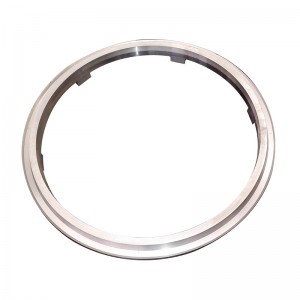- Afrikaans
- Albanian
- Amharic
- Arabic
- Armenian
- Azerbaijani
- Basque
- Belarusian
- Bengali
- Bosnian
- Bulgarian
- Catalan
- Cebuano
- China
- China (Taiwan)
- Corsican
- Croatian
- Czech
- Danish
- Dutch
- English
- Esperanto
- Estonian
- Finnish
- French
- Frisian
- Galician
- Georgian
- German
- Greek
- Gujarati
- Haitian Creole
- hausa
- hawaiian
- Hebrew
- Hindi
- Miao
- Hungarian
- Icelandic
- igbo
- Indonesian
- irish
- Italian
- Japanese
- Javanese
- Kannada
- kazakh
- Khmer
- Rwandese
- Korean
- Kurdish
- Kyrgyz
- Lao
- Latin
- Latvian
- Lithuanian
- Luxembourgish
- Macedonian
- Malgashi
- Malay
- Malayalam
- Maltese
- Maori
- Marathi
- Mongolian
- Myanmar
- Nepali
- Norwegian
- Norwegian
- Occitan
- Pashto
- Persian
- Polish
- Portuguese
- Punjabi
- Romanian
- Russian
- Samoan
- Scottish Gaelic
- Serbian
- Sesotho
- Shona
- Sindhi
- Sinhala
- Slovak
- Slovenian
- Somali
- Spanish
- Sundanese
- Swahili
- Swedish
- Tagalog
- Tajik
- Tamil
- Tatar
- Telugu
- Thai
- Turkish
- Turkmen
- Ukrainian
- Urdu
- Uighur
- Uzbek
- Vietnamese
- Welsh
- Bantu
- Yiddish
- Yoruba
- Zulu
11 月 . 11, 2024 10:10 Back to list
ductile cast iron manhole covers
The Advantages of Ductile Cast Iron Manhole Covers
Ductile cast iron manhole covers have become an essential component in urban infrastructure, embodying a perfect blend of strength, durability, and functionality. Unlike traditional cast iron, ductile cast iron is treated with specific alloys that enhance its mechanical properties, making it an ideal material for manhole covers. In this article, we will explore the various advantages of ductile cast iron manhole covers and why they are increasingly favored in modern engineering.
Strength and Durability
One of the most significant advantages of ductile cast iron is its exceptional strength and durability. Ductile cast iron can withstand heavy loads, making it suitable for use in roadways where vehicles pass over manhole covers regularly. This material has tensile strength comparable to that of mild steel, allowing it to endure high-impact forces without cracking or deforming. As a result, ductile cast iron manhole covers have a longer lifespan compared to their traditional counterparts, thereby reducing the need for frequent replacements and maintenance.
Corrosion Resistance
Another noteworthy feature of ductile cast iron is its inherent resistance to corrosion. Urban environments expose manhole covers to various harsh elements, including rain, salt, and pollution. Ductile cast iron is designed to resist these corrosive agents, thus preventing rust and degradation over time. This corrosion resistance not only enhances the lifespan of the manhole covers but also contributes to lower long-term maintenance costs for municipalities and infrastructure managers.
Safety and Accessibility
Ductile cast iron manhole covers offer improved safety features compared to traditional cast iron. The material is typically engineered with an anti-slip surface, minimizing the risk of accidents due to slipping, especially in wet conditions. Furthermore, these covers can be designed with special locking mechanisms to prevent unauthorized access, ensuring that only trained personnel can open them. This added security makes ductile cast iron manhole covers a preferred choice for public safety.
ductile cast iron manhole covers

Aesthetic Appeal
Beyond functionality, ductile cast iron manhole covers can contribute to the aesthetic appeal of urban environments. With advancements in design technology, manufacturers can produce covers with intricate patterns and finishes that complement cityscapes. Customizable designs allow municipalities to reflect their unique identity and heritage in infrastructure, enhancing the visual harmony of public spaces.
Environmental Considerations
In today's eco-conscious world, the environmental impact of materials used in construction is paramount. Ductile cast iron is a sustainable choice as it is primarily made from recycled materials, and its long lifespan means fewer resources are consumed over time for replacements. Additionally, at the end of their life cycle, ductile cast iron can be recycled again, further promoting a circular economy.
Conclusion
Ductile cast iron manhole covers represent a significant advancement in urban infrastructure materials, offering numerous advantages over traditional cast iron. Their strength, durability, and resistance to corrosion make them ideal for high-traffic areas, while their safety features enhance public security. Furthermore, the aesthetic possibilities and positive environmental impact make them a responsible choice for modern cities.
As urbanization continues to grow, the need for reliable and sustainable infrastructure will become increasingly crucial. Ductile cast iron manhole covers not only meet these needs but also elevate the standards of urban design and functionality. As municipalities and engineers pursue innovative solutions for infrastructure challenges, ductile cast iron will undoubtedly remain at the forefront, providing durability, safety, and beauty to the streets we navigate daily.
Ultimately, investing in ductile cast iron manhole covers is not just a choice for the present; it is a commitment to the future resilience of urban infrastructure.
-
Durable Cast Iron Water Main Pipe | AI-Optimized Design
NewsAug.05,2025
-
8mm Thin-Walled Cast Steel Manhole Cover Pallet Bottom Ring | Durable
NewsAug.04,2025
-
Premium Cast Iron Water Main Pipe: Durable, Corrosion-Resistant
NewsAug.03,2025
-
Durable Cast Iron Water Mains | AI-Optimized Systems
NewsAug.02,2025
-
High-Efficiency Propane Boiler for Baseboard Heat | Save Energy
NewsAug.01,2025
-
Premium Source Suppliers for Various Gray Iron Castings
NewsJul.31,2025


